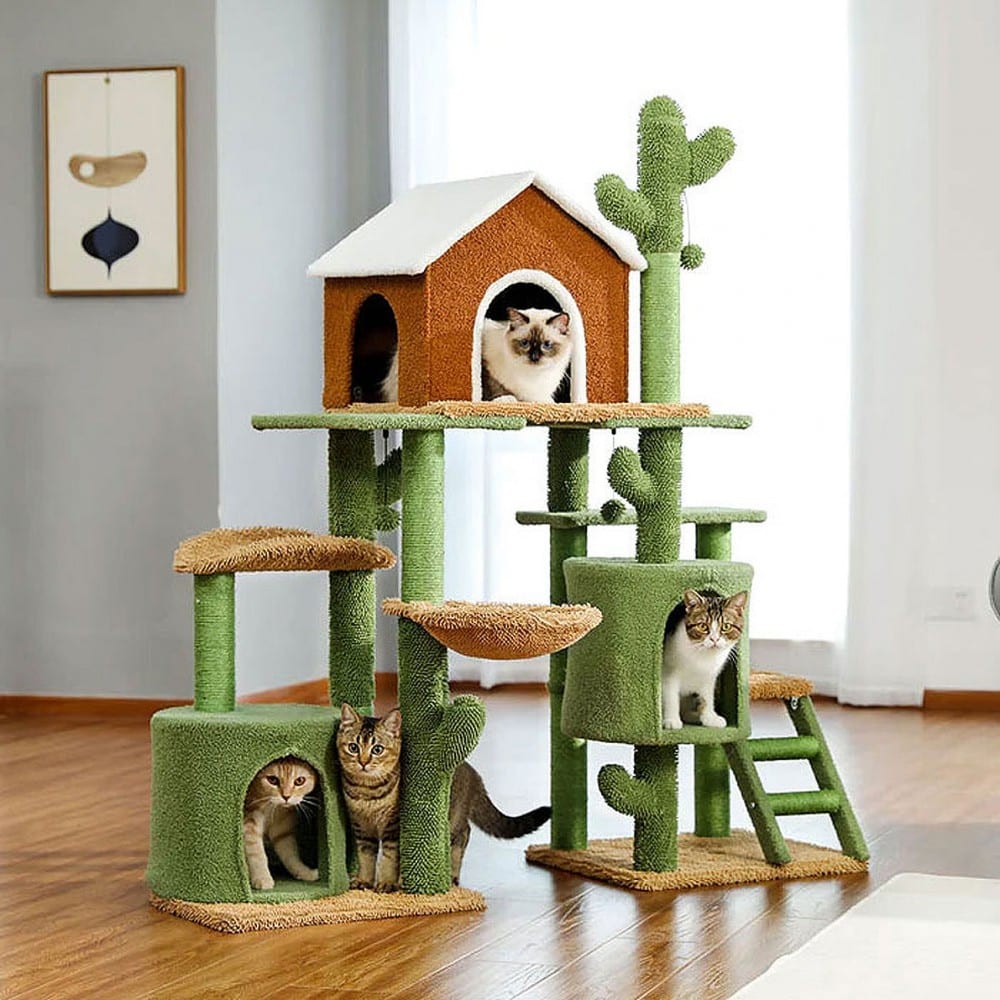Adding a new kitten or cat to your home can be a very rewarding or a very frustrating experience. It all depends upon how well you plan ahead for the new member of your family. Think of the first three weeks as the transition period before you start expecting them to feel really at home in your environment.
Before you bring your new kitten home be certain you have:
Purchased the same type of food the kitten is used to eating so you won’t upset its stomach by changing diet suddenly. If you don’t have the right food at home, ask the breeder for a small bag of food to last you for a day until you can buy some of the same kind. Also, try to get a small bottle of water from the breeder so you can slowly change over to your water.
Have two clean litter boxes ready.
Have good quality food and water bowls.
Have a cozy, soft-covered bed.
Toys without small parts that can be chewed off.
AND MOST IMPORTANTLY HAVE A QUIET SMALL ROOM SET ASIDE FOR KITTEN TO STAY IN UNTIL IT BECOMES COMFORTABLE WITH YOU AND IS EATING WELL.
WHY A SMALL ROOM?
Well, imagine that you have always lived in the same place and have NEVER left there. You know your littermates, your mother, and your people. You also know exactly where to find your food, fresh water, and your litter box.
NOW, imagine strange people come and take you away from everything you have ever known and drop you into the middle of a big strange house. Wouldn’t you be a little afraid? Sure!! Would you automatically know where to find your food and water AND your litter box? Of course not!! You might run and hide under the furniture or in a dangerous location like behind the refrigerator. Then the new people yell for you to get out from under the couch and reach for you and drag you out. You might get scaredand scratch them.
NOW imagine being placed in a small quiet room with food you are used to, fresh water, and a litter box all easy to find. You are given time to quietly explore your new space. And you soon see that these new people mean you no harm because every time they come and see you they sit quietly and talk to you sweetly and pet you. In a day, maybe even less, you are ready for them to leave the door open so you can start to explore the rest of the house at your own pace.
PLEASE, set up a small room, an extra bathroom works best for your new kitten cat. Remove anything that could hurt the kitten—bars of soap, glass jars, razors – and be sure to close the toilet cover! Your kitten will probably cry when left alone, it is calling for its littermates. When it comes running to you when you come to visit, it is ready to be allowed to explore the rest of the house.
IF YOU HAVE OTHER CATS AND/OR DOGS, you will also need to plan for a slow introduction of your new kitten. PLEASE keep your new kitten away from all of your other pets for at least a week. This gives the kitten a chance to be eating well and becomes confident with you. It also allows your other pets to begin to get used to the smell of the new kitten. Your other pets will sniff around the door of the room housing your new kitten and you will have its scent on your clothes.
DO NOT force the animals together. Do your best to monitor their interactions. If things get too rough, separate the kitten back into its room. Do not leave your new kitten alone with other pets until you are absolutely sure that they will get along. Don’t leave a small kitten alone with even the sweetest big dog. Accidents can and will happen. When you leave the house, put the kitten back in its room.
Initially have many more litter boxes than you can possibly want to live with, even if this means cut down to size cardboard boxes. The biggest cause of kitten “accidents” is because of not being able to hold it and “forgetting” where the litter box is. Avoid the possibility of these accidents at all costs because once a kitten goes in a spot, they can then smell it and recognize it as a place to go in the future.
Also, kittens are bored and become lonely very easily. Many people are not prepared for their high energy level. Kittens need lots of high-energy games and playtime. It is best if this if for short periods of time, several times a day, spaced throughout the day, as that is their natural pattern. Be careful not to let them jump too high (not much higher than their stretched-out length) until they reach about a year of age so that they have a chance to develop their muscles and don’t injure their joints or connective tissue.
ALWAYS supervise young children with pets. We know of a kitten who fell out of a second-story window because the kids left the room to go to dinner. The casement window was closed but not locked; the kitten played with the curtain pull cord and apparently swung into the window, forcing it open.
IF YOU FOLLOW THESE FEW SIMPLE RULES, YOU WILL FIND BRING A NEW KITTEN INTO YOUR HOME WILL GO EASILY AND SAFELY.







